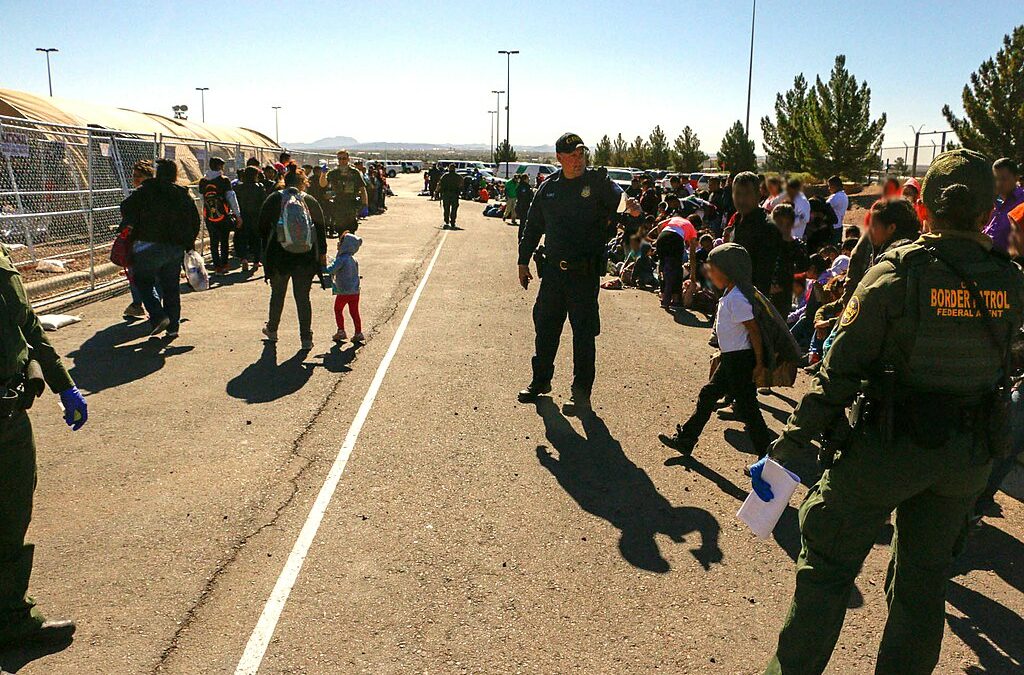
In a rapid, coordinated sweep across eight states and nine cities, federal immigration agents arrested 11 Iranian nationals over a 48-hour period beginning June 22, marking a significant escalation in the Trump administration’s ongoing effort to root out national security threats within the United States.
The operation, led by U.S. Immigration and Customs Enforcement (ICE), targeted individuals flagged for both immigration violations and suspected ties to terrorism or foreign military organizations. Among those apprehended was 44-year-old Mehran Makari Saheli, detained at his home near St. Paul, Minnesota. Federal officials identified Saheli as a former member of Iran’s Islamic Revolutionary Guard Corps (IRGC) who admitted past affiliations with Hezbollah—a group the U.S. government classifies as a foreign terrorist organization, according to CBS News.
In another high-profile arrest, Yousef Mehridehno was taken into custody near Jackson, Mississippi, wrote local news. After entering the country illegally and remaining undetected for nearly eight years, Mehridehno landed on a federal terrorism watchlist earlier this year for allegedly lying on a visa application. ICE officials cited his arrest as a key example of the administration’s renewed focus on high-risk foreign nationals.
🚨 Since Sunday, @ICEgov has arrested 11 Iranian nationals in the U.S. illegally across eight states — including a former sniper in the Islamic Revolutionary Guard Corps. pic.twitter.com/mrwlpn0xzC
— Rapid Response 47 (@RapidResponse47) June 24, 2025
In northern Alabama, agents intercepted Ribvar Karmi, who allegedly served as a sniper for the Iranian Army between 2018 and 2021. Karmi had entered the United States last fall on a K-1 fiancé visa and was found in possession of an active Iranian military ID. He now faces deportation proceedings while remaining in federal custody.
Of the 11 Iranian nationals detained in the sweep, five had prior criminal convictions—including grand larceny, narcotics violations, and illegal firearms possession. Department of Homeland Security (DHS) officials emphasized the broader implications of the operation, linking it to public safety and national security.
“We have been saying we are getting the worst of the worst out — and we are,” DHS Assistant Secretary Tricia McLaughlin said. “We don’t wait until a military operation to execute; we proactively deliver on President Trump’s mandate to secure the homeland.”
ICE arrested 11 Iranian nationals illegally in the U.S. over the weekend. These arrests reflect @Sec_Noem’s commitment to keeping known and suspected terrorists out of American communities.
🧵The criminal illegal aliens arrested include an individual with admitted ties to…
— Homeland Security (@DHSgov) June 24, 2025
Under the presidency of Joe Biden, several people linked to terrorism were released into the country by DHS despite being stopped at the border.
The enforcement effort also led to the arrest of a U.S. citizen, Linet Vartaniann, who was charged with threatening a federal officer and harboring an illegal alien. According to ICE, Vartaniann allegedly confronted agents at her residence on June 22 and threatened to shoot them.
The arrests come amid rising tensions in the Middle East, following U.S. airstrikes on Iranian nuclear sites over the weekend—retaliation for Iran’s missile barrage against Israeli targets. Although DHS has activated the National Terrorism Advisory System, officials insist there are no specific or credible threats to the homeland. Still, Secretary Kristi Noem warned of the possibility of Hezbollah-inspired violence or cyberattacks, calling for continued vigilance and local coordination.
ICE’s campaign reflects a dramatic uptick in enforcement metrics under President Trump’s second term. Average daily arrests have surged from 660 in early 2025 to 1,200 this month, with administration officials now aiming for 3,000 per day by year’s end. Last fiscal year, 68 Iranian nationals were apprehended by ICE—47 with prior criminal records—out of a total of more than 113,000 individuals taken into custody.
U.S. intelligence agencies are now monitoring potential acts of retaliation, including lone-wolf attacks or cyber intrusions tied to ongoing instability in the Middle East. DHS confirmed that joint operations with state and local authorities remain active, and that surveillance of suspicious activity has been intensified nationwide.
[Read More: Judge Orders Trump To Release ‘Pro-Hamas’ Activist]











